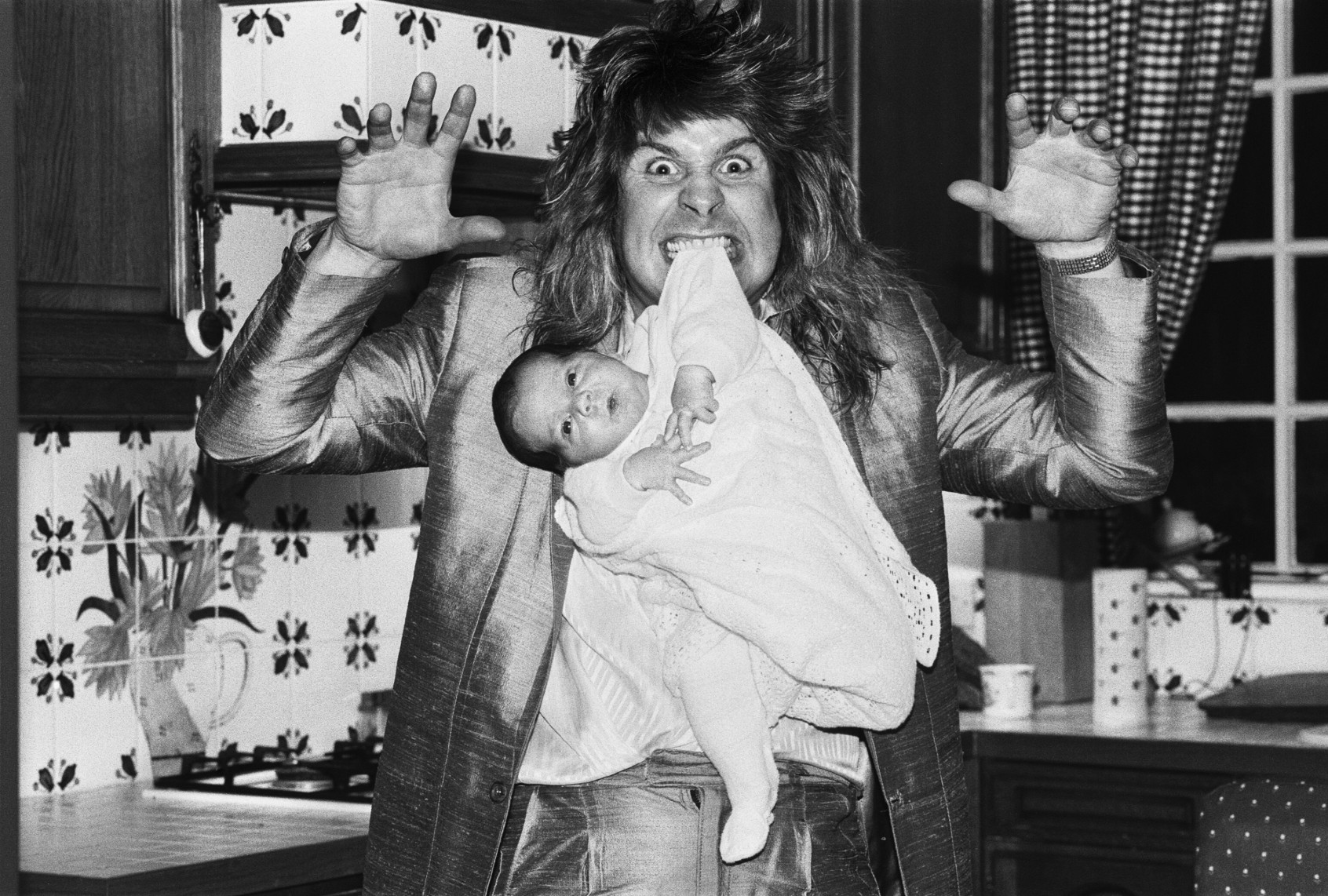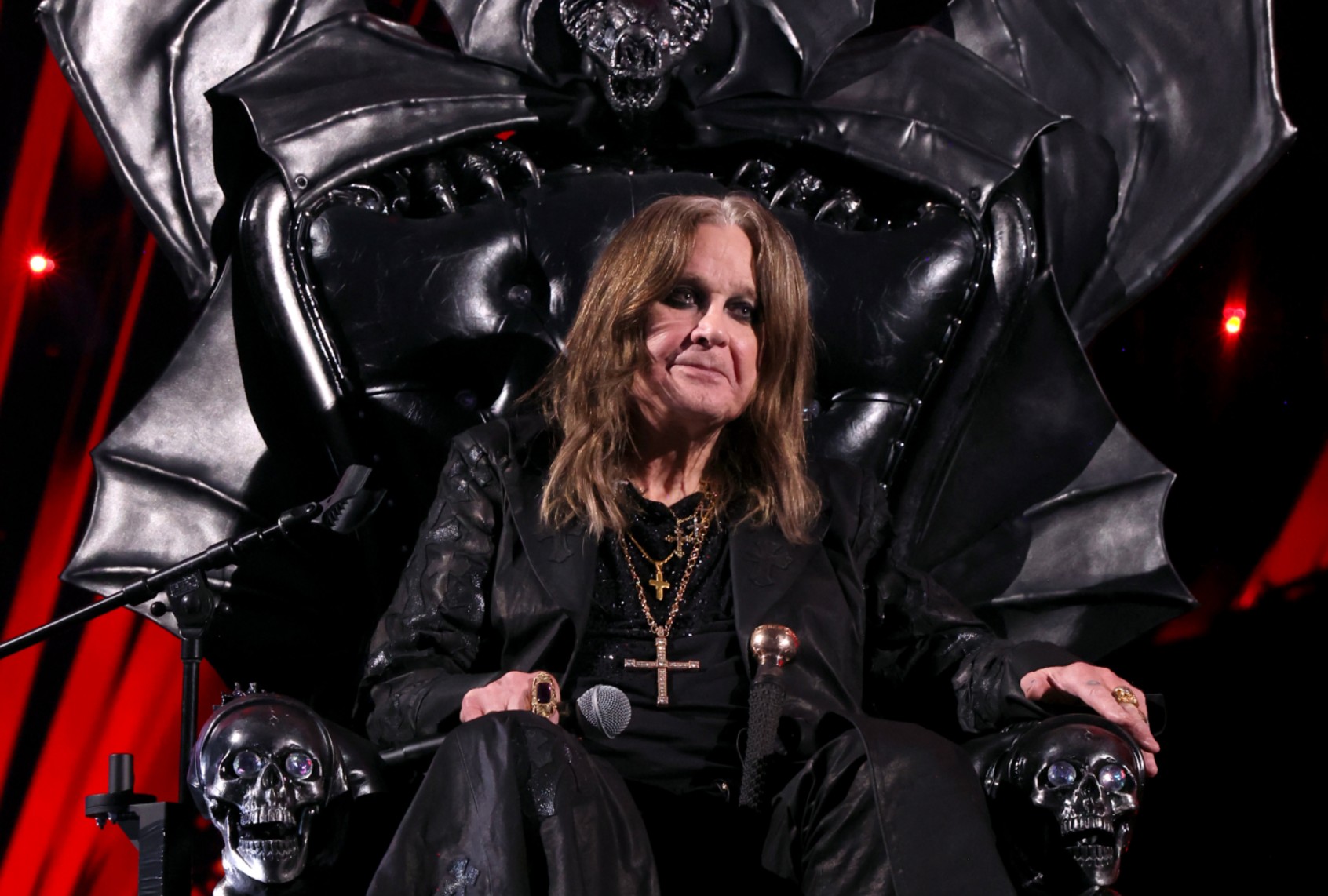Ozzy Osbourne died on July 22 at the age of 76. His cause of death: a long life as Ozzy Osbourne.
Officially, it was a heart attack. But if there’s one thread running through from the beginning to the end of his just-released memoir, “Last Rites,” it’s that the man born John Osbourne in 1948 was perpetually surprised that despite a legendary appetite for drink, drugs and reckless living, his number was not yet up. Part medical travelogue and part memory storm, “Last Rites” — Ozzy’s third memoir, following 2009’s “I Am Ozzy” and 2011’s “Trust Me, I’m Dr. Ozzy” (and, like them, co-written with Chris Ayres) — finds metal’s premier madman sidelined by injury and suddenly feeling the full weight of his own mortality. With self-effacement and a fair amount of excruciating clinical detail, “Last Rites” toggles between grateful yarn-spinning and hope for one last redemption. It’s a fitting final encore for a life lived at extremes; if you’re not a rock legend with a bank account to match, it’s also a tale that might leave you hoping to die before you get old.
With self-effacement and a fair amount of excruciating clinical detail, “Last Rites” toggles between grateful yarn-spinning and hope for one last redemption.
No one was more surprised than Ozzy to find himself alive at the age of 70. Like many in his profession, he’d seen heroes and mates like Keith Moon, John Bonham and Bon Scott check out too early; he’d also outlived compatriots who seemed immortal — most notably Motörhead’s Lemmy Kilmister, who penned the lyrics for Ozzy’s 1991 power ballad “Mama, I’m Coming Home.” But “Last Rites” suggests that once the health problems that derailed his 2018 farewell tour began to snowball, Ozzy beckoned death with one hand and held it back with the other, desperate to achieve closure before his final bow. It’s a story shot through with survivor’s guilt, countless conversational passages ending abruptly in wonderment at his own inexplicable insistence on continuing to live.

(Alex Pantling/Getty Images) Ozzy Osbourne performs during the Birmingham 2022 Commonwealth Games Closing Ceremony
Anyone who watched “The Osbournes,” the MTV reality series that ran from 2002 to 2005, might have been surprised to find out that Ozzy was a mere 53 when he became America’s favorite doddering old dad. The show, which prefigured “Keeping Up with the Kardashians” and the rest of the celebrity-reality genre, was conceived as a lark — a peek at Satan’s favorite son as he shuffled through his house sporting tinted glasses and an armful of small, fluffy dogs, the least dramatic member of his own household. As wife/manager Sharon and bratty teens Kelly and Jack fussed and fought and chewed the scenery (the couple’s oldest child, Aimee, refused to participate in the spectacle), Ozzy’s slurred, heavily bleeped commentary became the show’s uneasy comic relief.
“The Osbournes” kicked off the era of reality TV–as–redemption narrative, a way for celebrities with dwindling star power and/or lengthening rap sheets to resuscitate foundering careers. Ozzy famously hated the show, and his obvious disinterest in being on camera fueled concern that he was an addled dementia patient whose family was exploiting him. But his combination of pathos and comic timing endeared him to viewers while, behind the scenes, he continued to battle old demons like depression and guilt while concealing newer ones, like a diagnosis of Parkinson’s disease. Cuddly, out to lunch, and newly addicted to Chipotle burritos was fine. Shambling, out to lunch and still addicted to beer, weed and pills: not so much.
The events that in 2019 began a slow unwinding of Ozzy’s mortal coil are so vividly told that the producers of “The Osbournes” would surely have loved to broadcast them in much lighter form. During a break in his tour necessitated by a nasty staph infection, Ozzy’s habitual nod to youth (stage-diving into bed every night) collides with an indignity of aging (stumbling half-asleep and full-bladdered out of bed in the wee hours) and ends in a disoriented plummet straight to the floor. The fall exacerbates injuries from an ATV accident years earlier, knocking loose the hardware holding Ozzy’s road-weary frame together. (“I didn’t need a doctor so much as I needed a mechanic.”) And the spinal surgery he’s told can fix it sets off a mounting series of complications that force Ozzy off the road indefinitely.
Start your day with essential news from Salon.
Sign up for our free morning newsletter, Crash Course.
Weeks stretch into months and, once COVID arrives, months turn into years; each medical setback sends Ozzy to new lows of physical agony and psychic isolation. “Last Rites” takes on the expectant rhythm of a quest as Ozzy gets better and worse, much worse and a little better. Meanwhile, the projects that flower in his healthier intervals — collaborations with Post Malone and Busta Rhymes, recording a new album with a dynamic young producer — make him more determined to reckon with his past and find closure that will let him rest in peace.
“Last Rites” is the redemption narrative that “The Osbournes” couldn’t be — genuinely big-hearted rather than contrivedly quirky, refusing to overwrite past ugliness but still brimming with gratitude.
Regrets? He’s had a few. Despite regular acknowledgments of a life well lived, the man’s not too proud to admit that “This is Spinal Tap” was a bit too real for him (“I remember thinking to myself, wow, this is the most interesting and relatable documentary I’ve ever seen”). His memory is still burdened by the alcohol and drug benders that got him booted from Black Sabbath, the alcohol and drug benders that dogged his solo career, the alcohol and drug benders that couldn’t numb his sorrow and guilt about 1982 accident that killed his guitarist, Randy Rhoads, and his makeup/wardrobe mistress, Rachel Youngblood — “the two most sensible people on the entire tour,” who were nevertheless talked into a small plane by a coked-up amateur pilot.

( Mike Maloney/Mirrorpix via Getty Images) Ozzy Osbourne with baby Jack, 1985
Ozzy is also still haunted by the realization that he never thanked his old man for scraping together money for the equipment that let him start a band, and by the incident in 1989 when he blacked out, tried to murder Sharon, and woke up in prison. He mourns the falling-out with Black Sabbath bandmate Bill Ward that he didn’t try hard enough to rectify. The book’s final chapter chronicles Ozzy and Sharon’s efforts to pull off a 2025 reunion show and charity event in Ozzy’s UK hometown of Birmingham. They do it: it’s called “Back to the Beginning,” and it’s a resounding trump. Seventeen days later.
“Last Rites” is the redemption narrative that “The Osbournes” couldn’t be — genuinely big-hearted rather than contrivedly quirky, refusing to overwrite past ugliness but still brimming with gratitude. By book’s end, Ozzy’s in the grip of one last addiction, this time to Pink Lady apples (“None of that Granny Smith bullsh*t”) procured for him from L.A.’s spendy Erewhon market. It’s an inadvertent reminder that money, access, a staff and loving family couldn’t keep Ozzy from spending so much of his last years navigating emergency rooms and smooth-talking surgeons, battling for hope and paralyzed by pain. He doesn’t take any of it for granted.
“People ask me what I think’s gonna happen in the afterlife,” he writes in the book’s closing pages. “I say to ‘em, I’ve no idea, but it won’t be long now, so if you hang around a bit, maybe I can haunt you and give you the answer.”
Read more
about heavy-metal history


